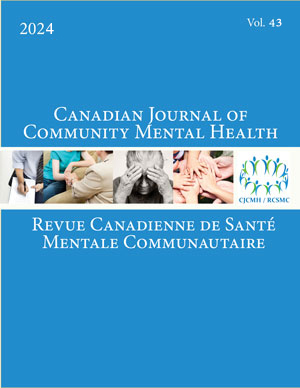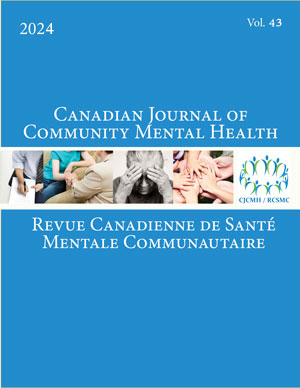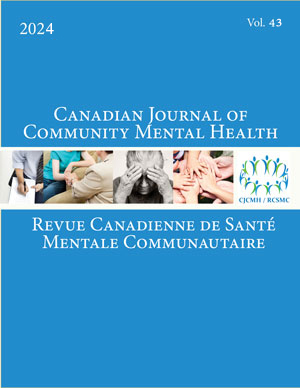Volume 34 • Number 3 • November 2015
Articles
OPEN ACCESS
This study documented the perspectives of landlords and clinical and housing service teams for head lease (agency holds the lease) versus rent subsidy (tenant holds the lease) in housing programs for adults with psychiatric disabilities. Sixteen landlords and 24 housing and clinical team members participated in individual or focus-group interviews. It was found that there was less contact between landlords and tenants in the head lease program, where housing teams tended to negotiate trouble spots. Also, head lease programs were marked by intensive oversight and partial (as opposed to full) separation of housing and clinical service teams.
OPEN ACCESS
Cette étude vise à cerner les conditions de travail expliquant le niveau de détresse psychologique chez les professionnels et professionnelles exerçant une profession réglementée au Canada. Des analyses de régression multiples multiniveaux furent conduites à partir des données longitudinales de l'Enquête nationale sur la santé de la population (ENSP) où les mesures répétées dans le temps (n1 = 1 727) sont nichées dans les individus (n2 = 276). Les résultats tendent à démontrer que seules les heures travaillées contribuent de manière significative à l'expérience de détresse psychologique dans ces professions et que plus la consommation d'alcool augmente, plus l'utilisation des compétences élève le niveau de détresse psychologique.
OPEN ACCESS
Une première transition à la paternité peut être une expérience enrichissante pour certains jeunes pères et une expérience difficile et stressante pour d'autres. Plusieurs facteurs personnels et environnementaux peuvent influencer le processus d'adaptation à la paternité. Cet article rapporte les résultats d'un mémoire de maîtrise qualitatif dont l'un des objectifs consistait à mieux saisir quels sont les facteurs susceptibles d'influencer ce processus. Les résultats recueillis suggèrent que prendre part à la décision de garder l'enfant et le soutien social auquel les jeunes pères ont accès représentent des facteurs cruciaux et déterminants dans leur processus d'adaptation à la paternité.
OPEN ACCESS
This study reports on the mental health services provided at a large, multi-site Ontario family health team (FHT) across one year of service delivery, describing a unique model of collaboration between psychology, social work, and primary care medicine. Patient satisfaction ratings and clinical outcomes were examined pre- and post-treatment. Referral patterns, presenting concerns, wait times, and treatment services are also reported. Significant positive outcomes were observed and patient satisfaction was very high. Importantly, short wait times (m = 6.4 weeks) were found relative to traditional mental health settings.
OPEN ACCESS
This paper explores how art can be used to tell stories and actively build safe spaces, and grew out of reflections from a capacity-building and knowledge translation/mobilization project involving 7 young people living on the streets. The paper considers how research can contribute to an examination of anti-oppressive practice and methodology, and an application of it in the field through an arts-based agenda. Conceptually, the paper takes up the postmodern turn in methodological considerations by exploring how the “spectacle” of a research agenda can come to be undone by a more participatory research process. This paper speaks to the processes involved in creating an arts-based environment and, ultimately, the building of a community space for sharing, for reflection, and for mobilization—storytelling not only as a form of art, but as a critical methodology.
OPEN ACCESS
This paper uses Arksey and O'Malley's (2005) framework for conducting scoping reviews to examine 25 years of Canadian literature to understand the importance of cultural beliefs, religion, and spirituality in the context of immigrant mental health and/or service utilization. A review of 24 selected articles revealed 4 broad areas relative to the role of religion, spirituality, and culture in these contexts. Based on the findings the authors suggest that in increasingly diverse societies like Canada there is an urgent need for mental health professionals to take into account in their practice their service users’ cultural, religious, and spiritual beliefs.










